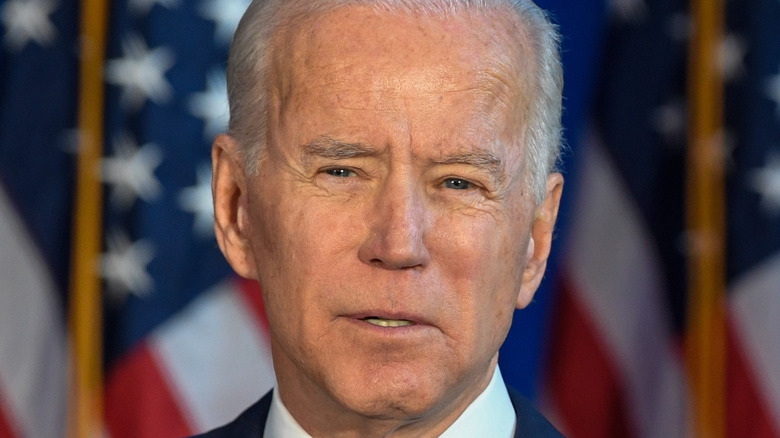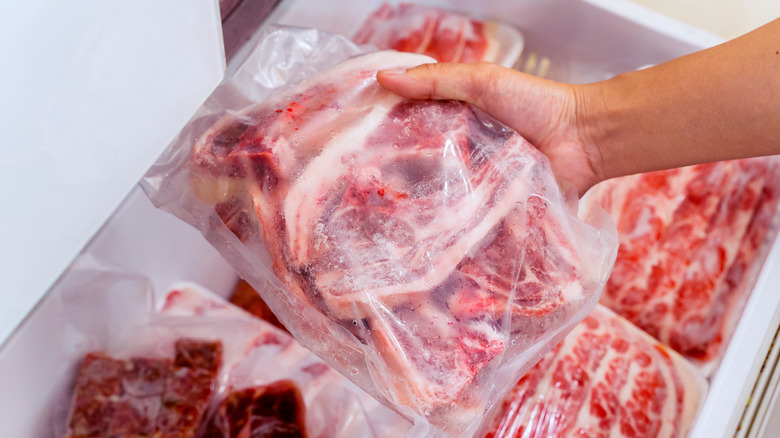What Meatpacking Companies Did Joe Biden Call Out In His State Of The Union Address?
Inflation is an ugly word, but its a reality we've all had to learn to live with in the aftermath of the COVID-19 pandemic. In early February of 2022, MarketWatch reported the U.S. saw inflation rise by 7.5% over 12 months to sit at a 40 year high, and the Biden administration says it knows who is partially to blame.
In September 2021, the White House wrote in a brief the largest price increases seen at the cash register have involved beef, pork, and poultry products, with beef prices rising by 14%, pork by just over 12%, and poultry by 6.6%.
It is no surprise then, that during his first State of the Union Address, President Joe Biden called out the country's leading meatpackers in a shoutout that appears to have been largely off-script. And while he didn't name check them in front of the country, previous reports from the White House indicate that the four companies are Tyson, JBS, Marfrig, and Seaboard.
As much as 85% of the country's meat supplies are controlled by four companies
It's not surprising that the president sought to single out a few specific companies in his speech, stating in an ad libbed shoutout to the meatpacking industry: "When corporations don't have to compete, their profits go up, your prices go up ... I need not tell some of my republican friends from those states ... guess what, you got four basic meat packing facilities — that's it. If you don't play with them you don't get to play at all, and you pay a hell of a lot more, a hell of a lot more because there's only four." To give you an idea of how powerful these companies are, Fortune says the country's largest meat processors control between 55% to 85% of the country's poultry, hog, and cattle markets.
In a statement released December 2021, the White House stated that the meat processing companies' profit margins were up by an astronomical amount since the COVID-19 pandemic began, adding that "Gross margins are up 50% and net margins are up over 300%. If rising input costs were driving rising meat prices, those profit margins would be roughly flat, because higher prices would be offset by the higher costs. Instead, we're seeing the dominant meat processors use their market power to extract bigger and bigger profit margins for themselves."
The administration ended the December brief promising, "Together, these actions will support families, farmers, ranchers, and workers, and address the concentration in meat processing that makes it easier for dominant corporations to hike prices."

